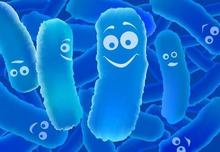
Bipolar disorder is a condition characterised by periods of depression and mania. During depressive periods people experience low mood, reduced pleasure in activities, low energy, distributed sleep, reduced appetite, and often suicidal thoughts. In contrast to these depressive periods, mania is characterised by increased energy, reduced need for sleep, impulsive and at-risk behaviours (including increased sexualised activity and spending), racing thoughts, and a general feeling of euphoria.
Bipolar disorder is most-commonly treated with medications such as mood-stabilisers and antipsychotics. These medications can help reduce the intensity and duration of manic/depressive episodes although a far from perfect. Relapse is common which often leads to periods of hospitalisation. Lifestyle approaches and psychological therapy can be very helpful for many people as periods of high stress and poor sleep patterns can trigger an episode of depression or mania.
Given the side effects associated with medications (e.g., weight gain, sexualised disturbances, metabolic disorder, etc), many people with bipolar disorder are interested in natural alternatives. Unfortunately, good-quality research into natural alternatives is limited. However, in a very promising study, the effects of probiotics as a treatment for bipolar disorder was investigated [1].
In this study, patients hospitalised for mania were randomised after discharge to receive 24 weeks of their standard medications PLUS adjunctive probiotics (Lactobacillus rhamnosus strain GG and Bifidobacterium animalis subsp. lactis strain Bb12) or adjunctive placebo.
During the 24-week observation period, there were a total of 24 rehospitalisations in the 33 individuals who received placebo but only 8 rehospitalisations in the 33 individuals who received the probiotics. Probiotic treatment also resulted in fewer days in hospital (mean 8.3 vs 2.8 days for placebo and probiotic treatment, respectively). The positive benefits of probiotics were especially effective in individuals with elevated levels of inflammation (as measured by various inflammatory blood markers).
Overall, these results suggest that probiotic supplementation (Lactobacillus rhamnosus strain GG and Bifidobacterium animalis subsp. lactis strain Bb12) in addition to medications can reduce the chance of relapse and rehospitalisation in people with bipolar disorder. This is a very exciting finding which requires replication, but the findings are especially important for people with bipolar disorder.